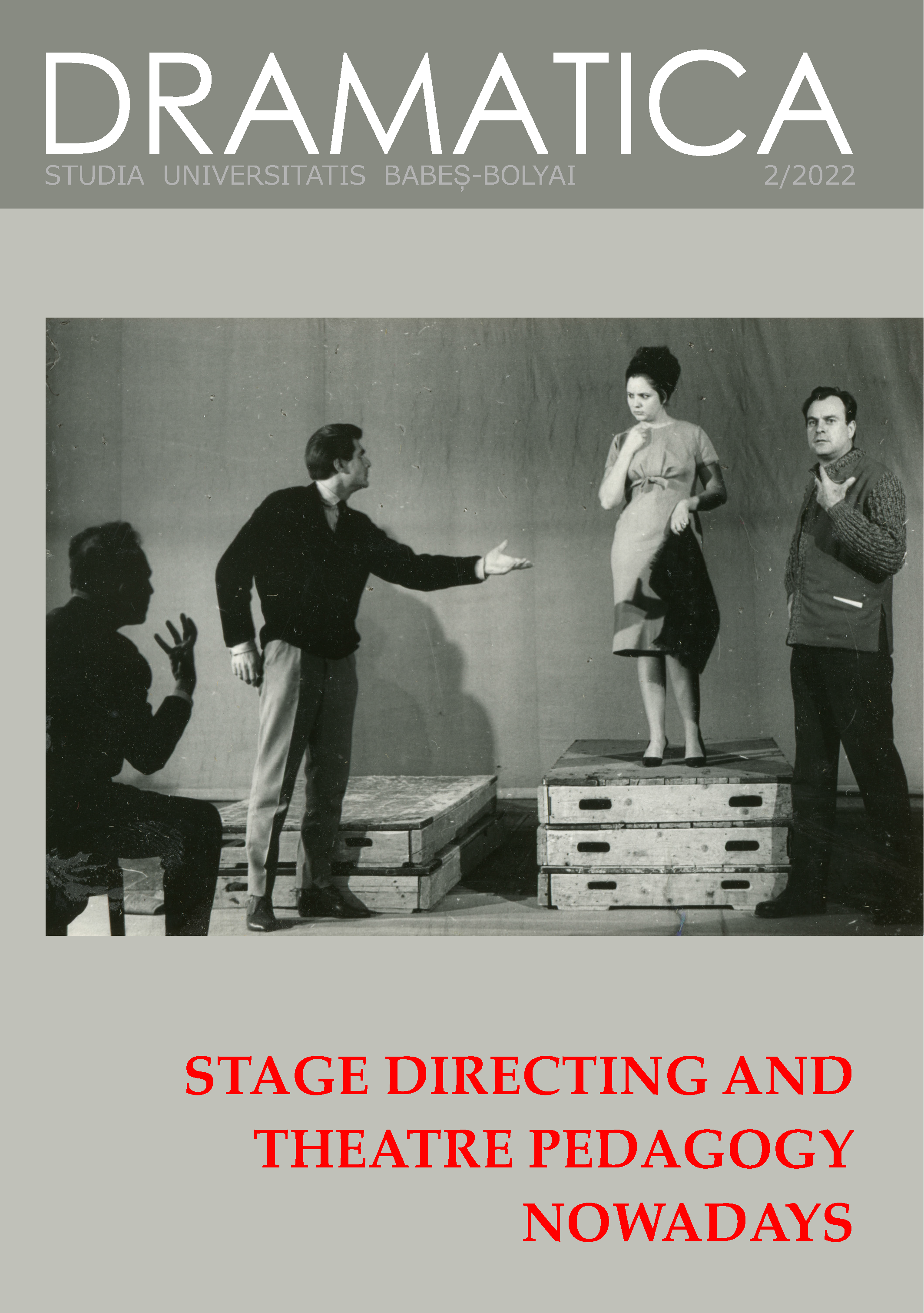The Theatrical System’s Reform as the Aim of the Theatre Director’s Education in Romania
DOI:
https://doi.org/10.24193/subbdrama.2022.2.05Keywords:
director, theatre, pedagogy, practice as research.Abstract
This article emphasizes the profound interdependence between the theatre directing educational system and the cultural system, taking into account the specifics of the situation in Romania. Identifying the theatre director as a pillar who defines the status quo in the cultural system and that oversees the implementation of a given global vision in theatres, the article argues that the director’s educational process naturally results in defining tomorrow’s theatre practices. In this context, the article identifies the key skills that the young director should have when entering the cultural system and argues in favour of their importance starting from practical situations in the institutional theatre system in Romania. These basic skills are: a deep understanding of all the compartments of a theatre and how each compartment functions, being able to further educate actors about the basic concepts of theatrical art, the ability to conduct a profound text analysis and, lastly, a commitment to use a directing notebook as starting point for their shows. The article concludes that the main reasons why the education system currently fails to develop these skills are the lack of time allocated to theatrical practice, but also the prevalence of the desire to train a small number of exceptional directors to the detriment of training al student directors to become capable of operating in the cultural market.References
Badea, Gelu, Solilocviu: fundamente ale regiei de teatru [Soliloquy. Basis of Theatre Directing]. Cluj-Napoca: Editura Eikon, 2017.
Barthes, Roland. The Neutral. Translated by Rossalind E. Kraus și Denis Hollier, notes by Thomas Clerc, coord. Eric Marty. New York: Columbia University Press, 2005.
Brook, Peter. The Empty Space. New York: Touchstone Books, 1996.
Eco, Umberto. A Theory of Semiotics. London: Indiana University Press, 1976.
Harag, György. György Harag, “Forța principală a spectacolului: munca regiei cu actorii” [“The Main Force of the Performance: The Director at Work with the Actors”], Teatrul, no. 9 September, year VI (1961).
Ionesco, Eugène. La cantatrice chauve. Paris: Gallimard, 1954.
Kiely, Damon. How to Read a Play. Script Analysis for Directors. New York: Routledge, 2016.
Lehmann, Hans-Ties. Postdramatic Theatre. Translated by Karen Jürs-Munby. London and New York: Routledge, 2006.
Merlin, Bella. Facing the Fear. London: Nick Hern Books, 2016.
Sava, Ion. Teatralitatea Teatrului [The Theatricality of Theatre]. Notes: Virgil Petrovici, pref. Liviu Ciulei. Bucharest: Eminescu Publishing House, 1981.
Online resources
https://teatrufilm.ubbcluj.ro/studenti/planuri-de-invatamant/, accessed on the 28th of June 2022.
http://www.arteiasi.ro/wp-content/uploads/2020/10/PLAN-REGIE-2020-2023-docx.pdf, accessed on the 28th June 2022.
https://unatc.ro/devunatc/departament/artele-spectacolului-regie/, accessed on the 28th of June 2022.
http://www.arteiasi.ro/wp-content/uploads/2020/10/PLAN-REGIE-2020-2023-docx.pdf, accessed on the 28th June 2022.
https://www.teatrulnationalcluj.ro/pagina-72/rapoarte-si-studii/, accessed on the 28th of June 2022.
Downloads
Published
How to Cite
Issue
Section
License
Copyright (c) 2022 Studia Universitatis Babeș-Bolyai Dramatica

This work is licensed under a Creative Commons Attribution-NonCommercial-NoDerivatives 4.0 International License.


